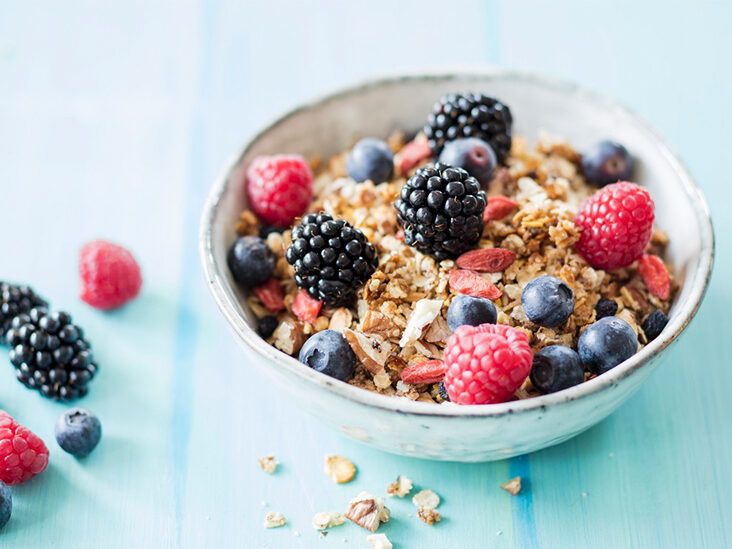Peanut butter is a popular spread and a good source of protein. However, it can be dangerous to people who are allergic to peanuts, and some brands are high in added fats and sugars. So, is peanut butter healthy or not for most people?
Peanut butter is one of the world’s most popular spreads.
To many peanut butter lovers, it tastes delicious and the texture is simply amazing — especially the way it sticks to the roof of your mouth before it melts.
Of course, not everyone can enjoy peanuts. Some people are allergic to peanuts, and they can even be deadly for a small percentage of the population (1).
But is peanut butter unhealthy for the remaining 99% of people? Let’s find out.
Peanut butter is a relatively unprocessed food. It’s basically just peanuts, often roasted, ground until they turn into a paste.
Yet this isn’t necessarily true for many commercial brands of peanut butter. These may contain various added ingredients, such as:
- sugar
- vegetable oils
- trans fat
Rather than buying processed foods with several added ingredients, choose peanut butter with only peanuts and maybe a bit of salt as its ingredients.
SUMMARYPeanut butter is basically a paste made of peanuts. Many lower-quality products also contain added sugar and vegetable oils.
- Carbohydrates: 22 grams of carbs (14% of calories), 5 of which are fiber
- Protein: 22.5 grams of protein (14% of calories), which is quite a lot compared with most other plant foods
- Fat: 51 grams of fat, totaling about 72% of calories
Even though peanut butter is fairly protein-rich, it’s low in the essential amino acid methionine.
Peanuts belong to the legume family, which also includes beans, peas, and lentils. Legume protein is much lower in methionine and cysteine compared with animal protein.
Methionine deficiency is usually associated with an overall protein deficiency or certain disease states. Methionine deficiency is extremely rare for people who are generally in good health.
For other protein-rich plant foods, check out this article on the 17 best protein sources for vegans and vegetarians.
SUMMARYPeanut butter is comprised of about 25% protein, making it an excellent plant-based protein source. However, it is low in the essential amino acid methionine.
Pure peanut butter contains only 20% carbs, making it suitable for a low-carb diet.
SUMMARYPeanuts are low in carbs and suitable for people with type 2 diabetes or those following a low carb diet.
And since peanut butter is rich in heart-healthy fats and is a good source of protein, it can be a good option for vegetarians or those following a plant-based diet to incorporate into their diet in moderation.
Half of the fat in peanut butter is made up of oleic acid, a healthy type of monounsaturated fat also found in high amounts in olive oil.
Peanut butter also contains some linoleic acid, an essential omega-6 fatty acid abundant in most vegetable oils.
SUMMARYPure peanut butter is a good source of healthy fats. While some people have been worried about its omega-6 linoleic acid content, there is limited evidence to justify their concerns.
- Vitamin E: 60% of the daily value (DV)
- Vitamin B3 (niacin): 84% of the DV
- Vitamin B6: 29% of the DV
- Folate: 18% of the DV
- Magnesium: 37% of the DV
- Copper: 56% of the DV
- Manganese: 65% of the DV
It is also high in biotin and contains decent amounts of:
- vitamin B5
- iron
- potassium
- zinc
- selenium
However, be aware that this is for a 3.5-ounce (100-gram) portion, which has a total of 597 calories. Calorie for calorie, peanut butter isn’t that nutritious compared with low-calorie plant foods like spinach or broccoli.
SUMMARY
Although peanut butter is high in many healthy vitamins and minerals, it also contains a substantial number of calories.
Like most real foods, peanut butter contains more than just the basic vitamins and minerals. It also contains plenty of other biologically active nutrients, which can have some health benefits.
Resveratrol has many other potential benefits, although human evidence is still limited.
SUMMARYPeanut butter is rich in antioxidants, including p-coumarin and resveratrol. These plant compounds have been associated with various health benefits in animals.
This is because peanuts grow underground, where they can be colonized by a widespread mold called Aspergillus. This mold is a source of aflatoxins, which are considered harmful to health.
Additionally, the United States Department of Agriculture (USDA) closely monitors the amounts of aflatoxins in foods and makes sure that they don’t go over recommended limits.
For more information on food molds, check out this article.
SUMMARYUnprocessed peanut butter may contain aflatoxins, which are compounds that have been associated with adverse effects on health in developing countries. Purchasing commercial brands of peanut butter and discarding moldy or discolored nuts can minimize the risk of side effects.
There are a lot of good things about peanut butter, but also a few negatives.
It’s fairly rich in nutrients and a decent protein source. It’s also loaded with fiber, vitamins, and minerals, although this doesn’t seem as significant when you consider the high-calorie load.
It is perfectly fine to incorporate moderate amounts of peanut butter into a healthy diet. But the main problem with peanut butter is that it’s so incredibly hard to resist.
Moderate consumption of peanut butter is unlikely to have any major negative effects. It’s more important to steer clear of sugary soda, trans fats, and other highly processed foods, if possible.






